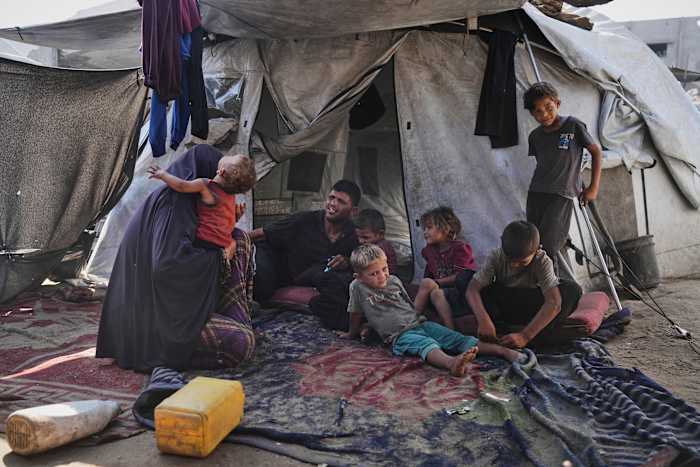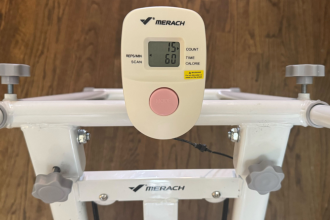A Daily Struggle in Gaza
In a tent at a camp for displaced Palestinians in Gaza City, Abeer and Fadi Sobh begin each day with a daunting question: How will they provide food for themselves and their six young children?
For the Sobh family, options are limited. They may find assistance at a charity kitchen offering a meager pot of lentils or attempt to gather flour from an aid truck, navigating through crowds of desperate recipients. Their last resort is to beg for food. When these attempts fail, they are left with empty stomachs, a situation that has become increasingly common as food shortages grow dire.
The Impact of War and Blockade
The Sobhs’ situation reflects the broader plight of families throughout Gaza, which has seen rising hunger over 22 months of conflict. Humanitarian workers indicate that the scenario of famine is now becoming evident. A complete blockade on food and supplies was enforced by Israel for 2½ months starting in March, aimed at pressuring Hamas to release hostages taken during the October 7, 2023 attack.
Although aid resumed in May, it remains insufficient to meet the overwhelming needs. The breakdown of law and order further complicates food distribution, with much of what does arrive being hoarded or resold at exorbitant prices.
A Glimpse into Their Daily Life
Mornings by the Sea
The Sobh children wake up in a sweltering tent, and fresh water is scarce. Abeer often retrieves seawater for their morning baths. One by one, the children bathe in a metal basin as she pours the saltwater over them. Nine-month-old Hala cries at the sting, while her siblings remain quiet.
With their bedding rolled up and the tent floor swept, Abeer sets out to beg for breakfast. Occasionally, generous neighbors provide lentils, but often she returns empty-handed. Feeding baby Hala is challenging, but Abeer tries to mix lentils into her water when she can. “One day feels like 100 days because of the summer heat, hunger, and the distress,” she explains.
Attempts to Find Food
Fadi often goes to a nearby soup kitchen, sometimes accompanied by a child. Unfortunately, food availability is inconsistent, with the kitchen opening only once per week and rarely having enough for those waiting. “Most often, I return to my family with nothing, and the kids sleep hungry, without eating,” Fadi says.
He previously traveled to northern Gaza, where large crowds vie for aid trucks. Tragically, he was shot in the leg last month, severely limiting his ability to compete for food. As he seeks alternatives, Abeer and her eldest children venture out to collect water from a truck delivering supplies from a desalination plant. The weight of the jerrycans poses a struggle for the little ones.
A Fight for Survival
Abeer sometimes goes to Zikim alone or with her son Youssef. She finds it difficult to compete in the crowds dominated by men who are often quicker and stronger. She appeals to those who receive food: “You survived death thanks to God, please give me anything.” Many respond, and she sometimes leaves with a small bag of flour.
As the day heats up, the children typically stay close to the tent. Their parents encourage them to rest to conserve energy and reduce hunger.
Scavenging for Fuel
In the afternoon, as the heat wanes, the children look for food or ask neighbors for help. They also navigate through the debris of bombed-out streets in search of materials to fuel their makeshift stove. They have learned to identify burnable items like scraps of paper or wood, but even plastic bottles and bags are potential finds.
On one occasion, a boy discovered a pot in the trash, which is now essential for cooking. “I have to manage to get by,” Abeer states, “What can I do? We are eight people.”
A Sparse Dinner
After a long day of searching for food, water, and fuel, sometimes Abeer manages to prepare a thin lentil soup for dinner. More often, however, they find themselves going to bed hungry.
Abeer admits that she is growing weaker and feels dizzy during her search for resources. “I am tired. I am no longer able,” she confesses. “If the war goes on, I am thinking of taking my life. I no longer have any strength or power.”
This heartbreaking account of the Sobh family paints a stark picture of survival amid adversity in Gaza.
___
Magdy reported from Cairo.






